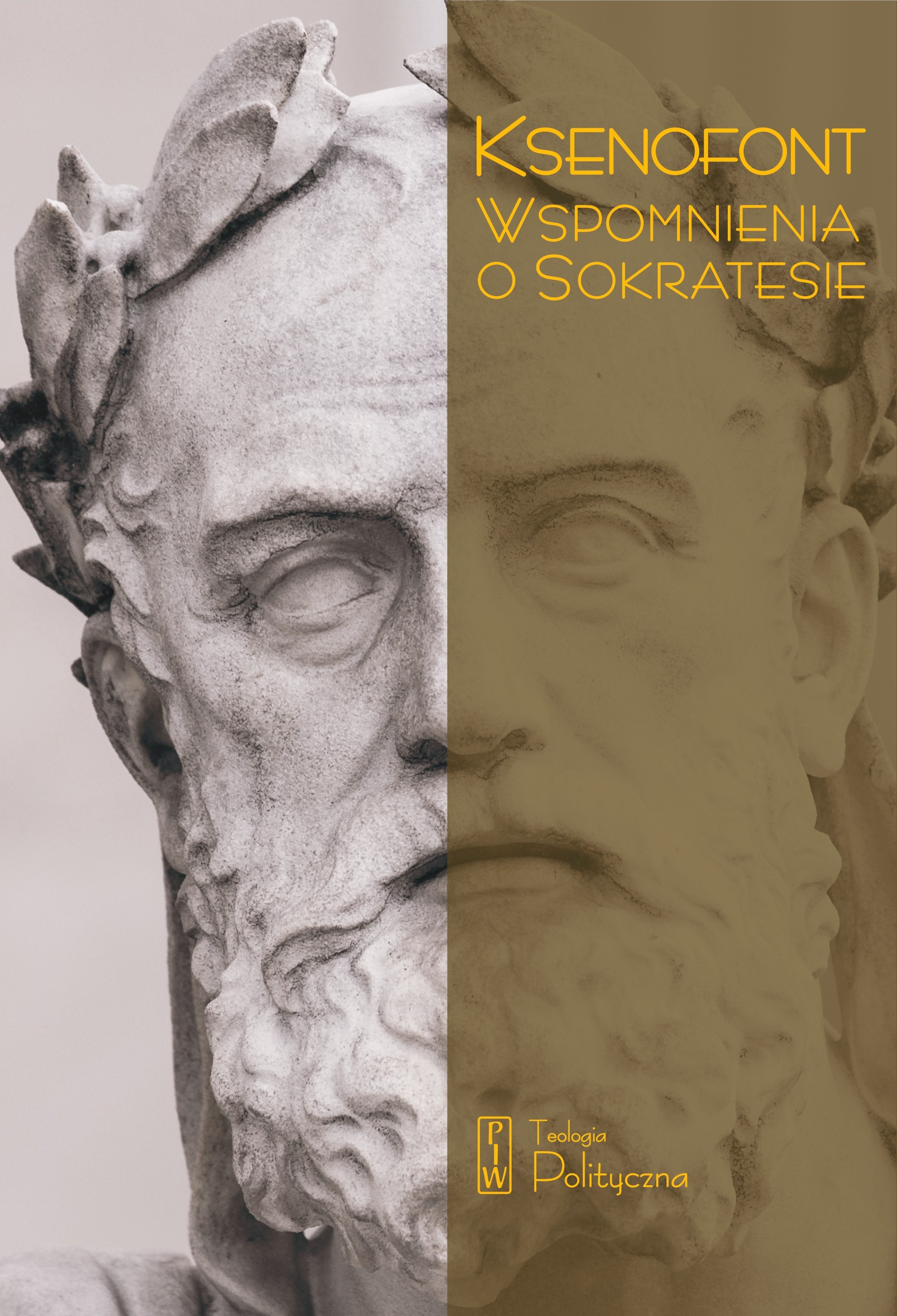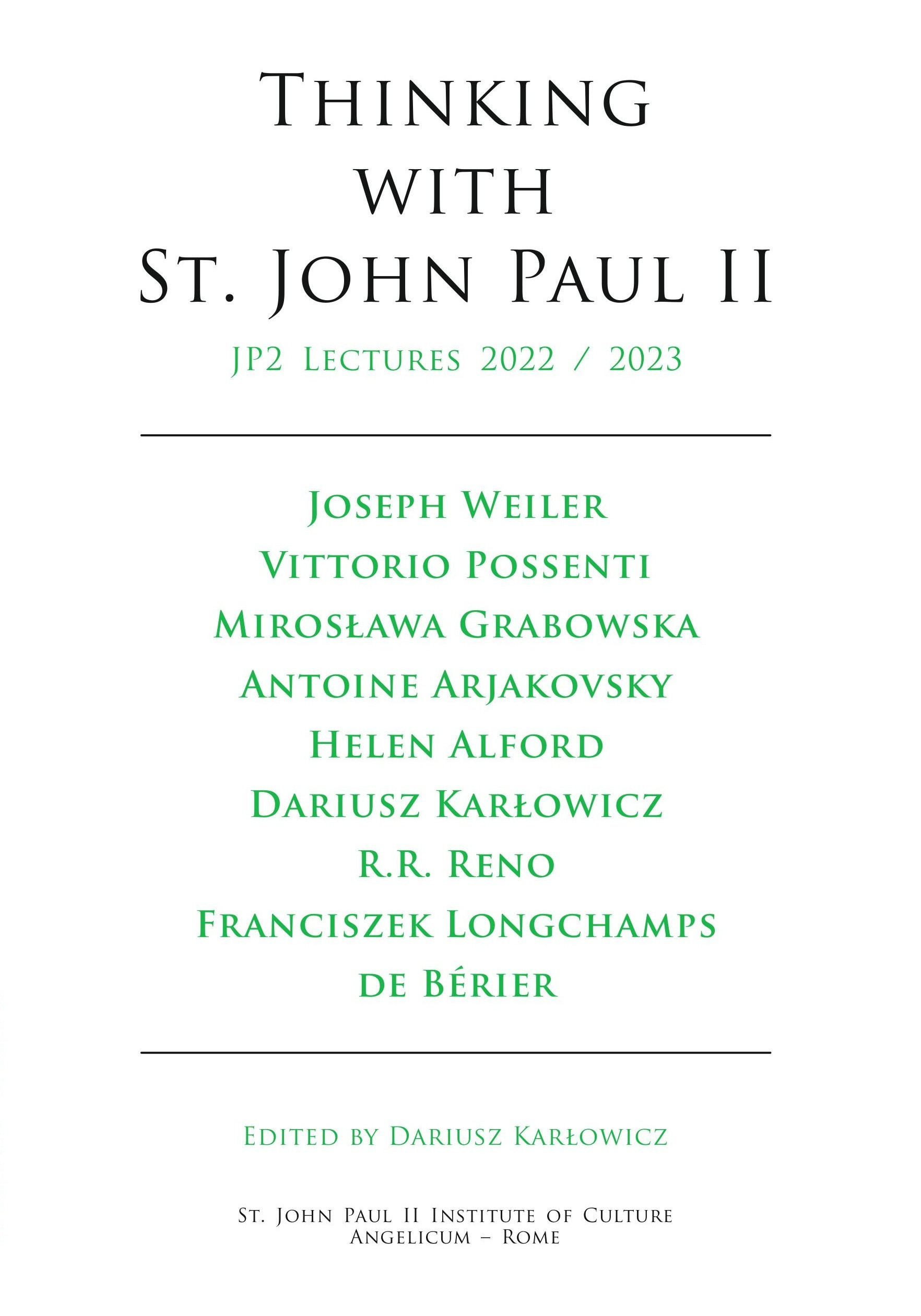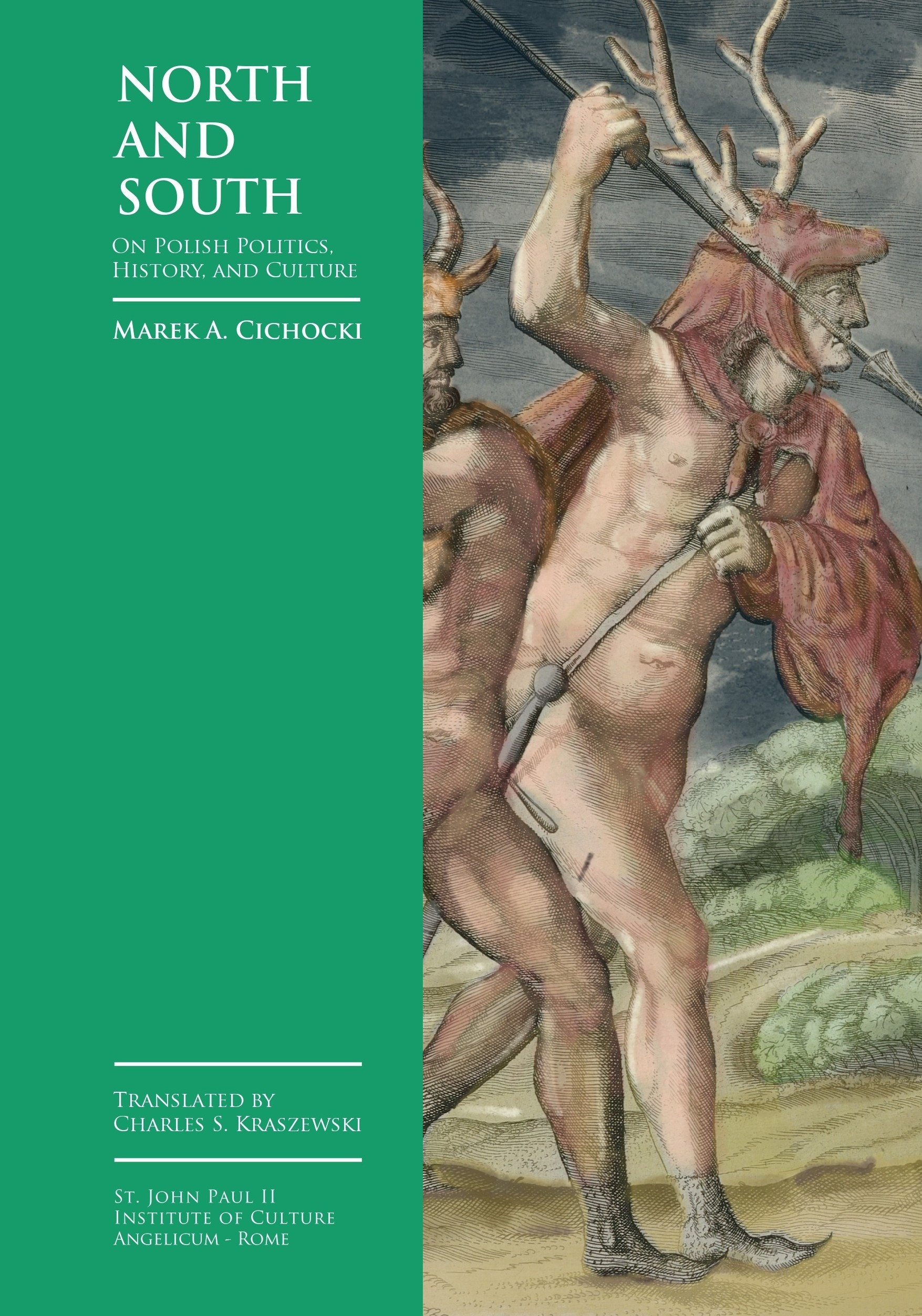John Cavadini: The Faith of Ancient Philosophy’s Fathers

W prestiżowym periodyku „The Church Life Journal” wydawanym na amerykańskim Uniwersytecie Notre Dame, ukazała się recenzja angielskiego wydania książki Dariusza Karłowicza „Sokrates i inni święci” (w tłumaczeniu Artura Sebastiana Rosmana). Jej autorem jest John Cavadini z tamtejszego wydziału teologicznego, jeden z najbardziej zaufanych świeckich współpracowników papieża Benedykta XVI, powołany przez niego w skład Międzynarodowej Komisji Teologicznej. Przytaczamy obszerny fragment tego artykułu.
Truly one of the joys of reading Dariusz Karlowicz’s Socrates and Other Saints: Early Christian Understandings of Reason and Philosophy, is its lively, engaging style. It is irresistibly beguiling and beguilingly irresistible in so many places. Consider, for example, this opening characterization of the Church Fathers:
Even though they looked to the heavens, they were firmly planted on the earth. They were not in danger of falling into a cistern like stargazing Thales. They lived in their own here and now. They knew what was en vogue. They not only knew the invaluable classics, but also the most fashionable trash . . . There is nothing of the classicist streak in them (xix).
But the feature of the text to which I am drawing attention here is more than just style for style’s sake, but rather a way of asking questions better than the ways in which similar questions have been asked before. As the author notes,
But do the philosophers and the prophets direct our gaze toward the same goal? Does philosophy at least lead us partially along the way? . . . What is the role of reason? How is reason related to faith? And what about the relation of revelation to nature? . . . The preceding list of questions not only grew out of my curiosity about how to answer them, but also from my curiosity about how to ask them (xx).
In the first chapter, we are given examples of the wrong and right ways of asking these questions. The wrong way, as Juliusz Domanski warns us, is to force “Christian attitudes towards philosophy into simple binaries” (2), such as the familiar construal of Justin Martyr as “a symbol of the tendency to harmonize,” while construing Tertullian “as a representative of anti-philosophical radicalism” (2). Acknowledging that there is indeed a “grain of truth” in these construals, that grain of truth functions to leverage better questions for ourselves, for example: “We should ask why the masked Stoicism of Tertullian is less ‘philosophical’ than the ostentatious Platonism of Justin?” And, Karlowicz tells us, “the confusion will only multiply if a scholar wants to utilize this dichotomy to demonstrate an ‘inevitable antagonism’ between faith and reason—understood as a supra-historical conflict, that is, independent of the concepts specific to late antiquity” (2-3).
A correct way of asking the question about the relationship between ancient Christian theologians and philosophy would not put the question in terms of the relationship between the Christians, who depend upon faith, and the philosophers, who depend upon reason
One of these concepts, taking a cue from Pierre Hadot’s book Philosophy as a Way of Life, is that “the philosophy that ancient Christianity encountered . . . was more than anything a ‘way of life’” (7-8), and this entails the dichotomy-busting idea that philosophy in antiquity involved an element of faith. Origen famously reminded his opponent Celsus of that in the third century (CC 1:10, see p. 9, n. 28), and Karlowicz is reminding us of that here in the 21st century: “Philosophy, understood as the path toward perfection,” a way of life in that sense, “promised the fullness of knowledge only at the end of one’s philosophizing,” and therefore “[p]hilosophy involved faith in the correctness of the advice given by the spiritual director” (8). So, a correct way of asking the question about the relationship between ancient Christian theologians and philosophy would not put the question in terms of the relationship between the Christians, who depend upon faith, and the philosophers, who depend upon reason.
In Chapter 2, Karlowicz presents us with another binary-deflating, question-revising move complementary to the redistribution of faith more equitably among philosophy and Christianity, by decoupling “philosophy” and “reason” to avoid using them as though they were synonyms, such that ancient Christian attitudes towards “philosophy” were the same as ancient Christian attitudes towards “reason”: “I am convinced,” he tells us, “that many misinterpretations of early Christian thinkers emerge from identifying their stance toward pagan philosophy with a general stance toward reason. I am convinced,” he continues, that “this identification is false” (13). St. Paul may contrast the wisdom of God with the wisdom of the world, but that is not precisely a contrast between revelation as positive and reason as negative, for in Romans 1 he famously endorses what natural reason (reason, in a way, uncluttered by the “wisdom of the world”) can discover in virtue of the fact that “ever since the creation of the world, God’s invisible attributes of eternal power and divinity have been able to be understood and perceived in what He has made” (Rom. 1:20, cited on p. 15).
Karlowicz’s subsequent analysis of Tertullian on the one hand, and Justin on the other, boldly demonstrates what is at stake in decoupling Christian attitudes towards “philosophy” from Christian attitudes towards “reason.” One can have a lot of confidence, for example, in the ability of reason to know the objective structure of reality, even if the mysteries revealed by revelation remain unreachable by reason because of the finitude of human reason, while at the same time revelation may help reason see the deficiencies of certain philosophical positions as merely “worldly.” Strikingly, in a bold but certainly correct reversal of expectations, the supposedly anti-intellectual, anti-rational, fideist Tertullian is one of the most important second to third century champions of reason understood in this way. You can ask the rhetorical question, “What has Athens to do with Jerusalem?,” implying the answer, “Nothing,” and nevertheless have a high estimation of reason and its capacities. It is blindness not to notice, Karlowicz suggests, that “philosophy, Greece, attachment to error, Athens, and the Academy need not be (and they are not!) synonyms for natural reason, but rather historical examples of its compromise” (17). Tertullian in fact “makes war against a philosophy that falsifies nature; he makes war in the name of both reason, nature and revelation (18, emphasis original), using the kosmos as many of his philosophical contemporaries as proof for the existence of God, and that the Christian soul, purified by revelation, can see this proof more clearly than those who do not have the benefit of revelation. The force of Tertullian’s “rationalism” (as Karlowicz provocatively calls it) can be seen in the treatise The Soul’s Testimony as well as in the first book (I would add) of his five books against Marcion.
Karlowicz argues, despite the contrast between Justin and Tertullian, a contrast that runs contrary to the usual binaries imposed upon them, both of them still represent a position where faith and reason are complementary
By contrast, Justin Martyr, usually presented as making lavish claims for the wide reach of natural reason, has a positive attitude towards philosophy but gives natural reason a rather restricted scope: “it appears,” he tells us, “that Justin (also known as the Philosopher) seems to attribute a much smaller role to natural reason than Tertullian, who is mostly known for his aversion to Athens” (25). Justin is famous for his doctrine of the “seeds of logos or reason” present in all human beings, and these “seeds,” given to all people, are sometimes confused with the Logos-Christ, the Logos of Christian revelation. It is not the spermata tou logou that have made Socrates and other saints such as Heraclitus Christians, in effect, before Christ, but rather a share in the Logos-Christ, which is essentially different: “The wisdom of the pagans so admired by Justin, only revealed to the select, is a revelation that is incomplete, but still supernatural, just like the revelation of Christ.” Karlowicz then draws the conclusion, “If that is the case then there can be no talk of affirming the natural possibilities of reason. Reason not inspired by the Logos is not capable of more than an intuition of God’s existence and a jumble of the most basic moral tenets” (29). Nevertheless, Karlowicz argues, despite the contrast between Justin and Tertullian, a contrast that runs contrary to the usual binaries imposed upon them, both of them still represent a position where faith and reason are complementary: “Even though Christians obviously modified the Greek concepts of nature and reason, that is, they were well acquainted with the difference between the God of the Christians and the God of the philosophers (as Tertullian put it), they did not create some totally new rationality that “tear[s] out from our being all the postulates of our ‘natural knowledge’ and our ‘natural morality’” (31, quoting Lev Shestov, Athens and Jerusalem, 228).
Chapter 3 then takes up the question, which follows from the assertion of the complementarity of faith and reason, “How Much [Real] Wisdom Is There in Philosophy?” (chapter title, 33). Here again the right answer depends on asking the right question:
The most properly framed question does not attempt to determine whether there are accidental overlaps between philosophy and revelation . . . Instead, the real question is as follows: is there enough truth in philosophy to guide one’s life according to its lights in order to live a life in accord with reason? (36).
This question takes seriously the claim that philosophy is, first and foremost, a way of life in antiquity. It is a given that one cannot live a perfectly Christian life by following only a philosophical way, but “can one at least live reasonably by following positive philosophy?” (36). The answer to this question given by the Apologists was for the most part negative, ranging from the fanatical denunciation of the philosophers by Tatian, to the more positive assessment of his teacher Justin, but in any event the Apologists, Karlowicz tells us, “rejected philosophy as a way of life, meaning, as an alternative on equal footing with Christianity,” and this for two reasons. The first is that the conflicting views of the philosophers lead to uncertainty about what, in fact, is the right way of life; while the obvious and inevitable falsehoods in pagan philosophical systems led to immorality and thereby rule out philosophy as a way of life fully acceptable to Christians.
Karlowicz points out, many of the arguments the Christians used to undermine Greek polytheistic theology came from the pagan philosophers themselves
Falsehoods in philosophy lead to idolatry, of the sort that Paul predicts in Rom. 1:22-26, as he says, “they exchanged the truth of God for a lie and revered and worshipped the creature rather than the Creator” (Rom. 1:25, cited on 40). Ironically, Karlowicz points out, many of the arguments the Christians used to undermine Greek polytheistic theology came from the pagan philosophers themselves, such as the “critique of anthropomorphism and immorality of polytheistic religions,” which were a “basic weapon in the Greek philosophical armory” (42). Falsehood leads to immorality. But if that is true, the contradictions among the philosophers themselves leads to uncertainty as to what actually is the true way of life, and to an instability in whatever philosophical way one might embrace. Even for Justin, philosophy needs considerable supplementation from revelation, and Socrates is no exception, since, if he was a sage, he was so “only by chance, because he reached his natural perfection through a happy convergence of coincidences, blind chance, or, and this is probably what Justin hoped, through freely given grace without regard for human merits” (44). His philosophy, as such, is clearly discredited by such a judgment. From this point of view, it is Christianity that is the only true philosophy, and, thereby, “the uniqueness of Christianity as the way of perfection is preserved” (45).
In the long fourth chapter, Karlowicz provides many examples of the way in which the Apologists selected and adapted philosophy, all of them already hinted at or adumbrated in the first three chapters. Still, some of the most brilliant work in this book is located in this chapter. I would include here especially the treatment of Tertullian. Karlowicz embraces a thesis that is provocative in the extreme, to say the least, and seems implausible on first glance, namely that Tertullian adopted for the needs of Christianity many more elements of pagan philosophy than even Justin, and that he did it in a way that was hidden and therefore all the more effective in injecting what he took over into the mainstream of Christianity. Tertullian’s diatribes against philosophy and the philosophers are a transposition, Karlowicz claims, of traditional Roman disdain for Greek philosophy as essentially sophistry and impractical speculation. Tertullian’s use of the figure of Thales, for example, skewering his fall into a well as rightly served for his excessive star-gazing speculation, mimics Cicero’s own critique, which contrasts the philosophers, represented by Thales, to Scipio, who “represents politics and combines cosmological knowledge with an impressive record of serving the state” (71). Tertullian has leveraged the Roman critique of philosophy into his own critique of philosophy, representing Christianity as the Scipio to philosophy’s Thales. “Neither Tertullian nor the Romans reject reason,” Karlowicz tells us. “No, according to them, there is no more reasonable life than, respectively, either the Christian life, or that of a citizen of the Empire” (72). Speculation as a spiritual exercise provides no clear way, but the exercises of striving for virtue in the active life, provides the raw material for the way, just as they did for the Romans, but with corrections and a goal marked out by revelation.
Speculation as a spiritual exercise provides no clear way, but the exercises of striving for virtue in the active life, provides the raw material for the way, just as they did for the Romans, but with corrections and a goal marked out by revelation
Clement of Alexandria is also treated with remarkable skill. In Karlowicz’s reading, Clement understood, on the one hand, that an over-emphasis on philosophy could lead to a kind of intellectual elitism that would seem to obviate faith for the intellectually accomplished Christian; and yet, on the other hand, it is also arrogant for the Christian to think that “the grace of faith frees one from the difficulty of spiritual work” (57), from the spiritual exercises expected if anyone embracing a philosophical path were to achieve perfection. Faith is sufficient for salvation, but only a good education can help one distinguish “sophistry from philosophy” when deployed by an opponent, and the Platonic ideal of divinization through contemplative knowledge remains an ideal, if only an abstract one which “gains concrete and real qualities through its encounter with Christianity” (61). One must still battle with the passions, as prescribed by the Stoics, and dialectic as well, if one is to be able to distinguish true from false intellectual positions. Karlowicz sums up his treatment of Clement by saying that “faith is not objectively any less true than gnosis” but that the difference is in the “state of mind” of the person in question. Faith is “the state of mind of a person who is at the starting point of spiritual transformation,” as though “an only partially proven hypothesis,” while gnosis is, not its abrogation or dismissal or outgrowing, but its “confirmation,” which “is reached at the end of moral and epistemological transformation,” and “when, at its highest point, gnosis transforms itself in to love” (67).
A brief conclusion to this accomplished and elegant little book summarizes the temperament of the Apologists as, in the main, both anti-fideist antecedents to the Augustinian idea of “faith seeking understanding,” and, at the same time, making use of another Augustinian distinction, conscious of philosophy as something to “use” rather than something to “enjoy” as an endpoint of fruition (or as productive of one).
Read the full version on the site „The Church Life Journal”
John Cavadini
________
Author is the McGrath-Cavadini Director of the Institute for Church Life and a professor in the department of theology at the University of Notre Dame. In November 2009, he was appointed by Pope Benedict XVI to a five-year term on the International Theological Commission and was also created a member of the Equestrian Order of St. Gregory the Great, classis civilis, by Pope Benedict.
Featured Image: Wall painting at a house depicting Socrates, 1st–5th century CE; Source: Wikimedia Commons, PD-Old-100.
Ty też możesz wydawać z nami KSIĄŻKI, produkować PODCASTY, organizować wystawy oraz WYDAWAĆ „Teologię Polityczną Co Tydzień”, jedyny tygodnik filozoficzny w Polsce. Twoje darowizny zamienią się w kolejne artykuły takie jak ten, który właśnie czytałeś i pomogą nam kontynuować i rozwijać nasze projekty oraz tworzyć kolejne. Środowisko Teologii Politycznej działa dzięki darowiznom prywatnych mecenasów kultury – tych okazjonalnych oraz regularnych. Dołącz do nich już dziś i WSPIERAJ TEOLOGIĘ POLITYCZNĄ!









